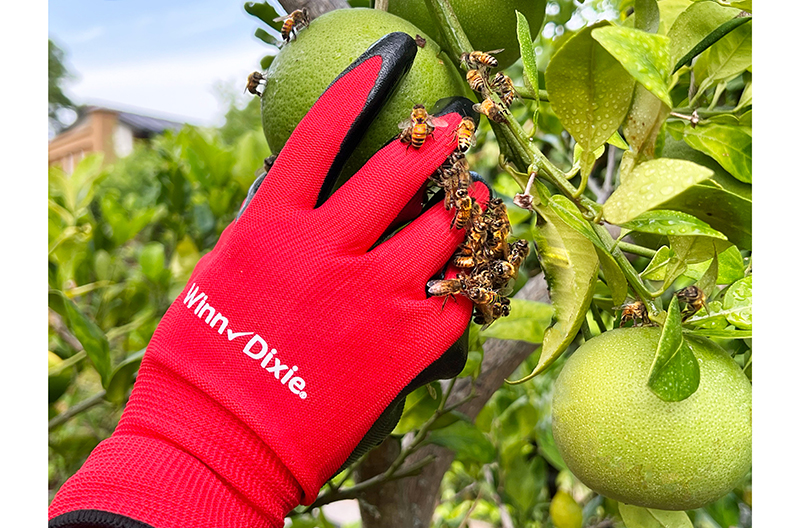Jacksonville, Florida-based Southeastern Grocers has announced its commitment to protect the health of essential pollinator populations for future generations.
Southeastern Grocers’ investment in the health of pollinators includes working with and supporting supplier partners that avoid the use of particularly detrimental pesticides like neonicotinoids, glyphosate and organophosphates.
It also includes: sourcing fresh produce and floral from suppliers with third-party verified integrated pest management practices; encouraging supplier partners to obtain pollinator-friendly certifications which facilitate consumer education; and working to increase the amount of USDA Organic produce offered in stores.
“At Southeastern Grocers, we are committed to the development of lasting change, especially when it comes to safeguarding the world’s food supply for our future generations,” said Steve Williams, VP of produce and floral.
“As a grocer, feeding people is our first priority, and protecting the health of pollinators like honey bees is paramount to ensure we are able to help nourish our communities for years to come.”
Honey bees, butterflies, birds, bats and other pollinators are instrumental to the development of the earth’s plants and crops, which makes them vital to the world’s food supply.
According to a report by the U.S. Department of Agriculture, approximately 35 percent of the world’s food crops rely on animal pollinators for reproduction. The use of pesticides in conventional farming methods is perpetuating the destruction of pollinator habitats, resulting in the loss of pollinators entirely.
The Pollinator Health Policy commits to engaging with supplier partners to establish clear objectives resulting in healthier environments for pollinators.
With the goal to pursue purposeful change, Southeastern Grocers will continue to develop commitments to further support opportunities that advance pollinator-friendly practices in the Southeast. Together, with the help of its supplier partners, Southeastern Grocers will work toward creating stronger communities and sustainable products.
To learn more about its Pollinator Health Policy, visit segrocers.com/socialresponsibility.

